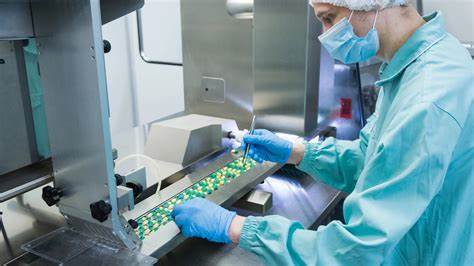Redefining Boundaries with Bio-manufacturing: Transforming India's Biopharma Industry
September 07, 2024 | Saturday | Features
A Report by Cactus Communications, written by Dr H. S. Sudhira, Director, Gubbi Labs
image credit- shutterstock
The emerging wave of global industrial revolution is coalescing around the prospects of greener, cleaner, and more sustainable practices offered by advanced biotechnology. With the staggering projection for the bioeconomy sector, India is positioned at the helm of this revolution. The Government of India's forward-looking policies and programmes such as the Department of Biotechnology's initiative on "Fostering High Performance Biomanufacturing" has set the stage for this. Alongside, industries in the biopharma sector offer promising prospects in the nation's shift toward circular bioeconomy.
India’s bio-manufacturing capabilities are primarily anchored in synthetic biology, genome editing, metabolic engineering, among other advanced tools. These represent a "plug and play" model for Industry 4.0, central to the nation’s vision of creating a green, clean, and prosperous India. Bio-foundries, with their high-throughput capabilities to build and strengthen a Design-Build-Test-Learn (DBTL) approach, are expected to provide the much-needed infrastructure for this transformative shift. Through such initiatives, India aims to develop tools and datasets for rational strain improvement in bio-manufacturing.
One of the unique aspects of this is the inclusion of BioAI – Bio-Artificial Intelligence though AI hubs. It envisages supporting an AI-powered platform for microbial engineering for industrial scale synthesis of small molecules. More than 2000+ microbial strains has been identified for their commercially relevant features and preserved in national laboratories. In addition, generating datasets on multi-omics datasets, computational workflows for processing and integration of these are envisaged. Complimented by metabolic maps and microbial cell factories, they would all ultimately leverage cloud-based AI platform for microbial engineering, shared Dr Rajesh Gokhale, Secretary, Department of Biotechnology, Government of India in a recent meeting held in Bengaluru.
Among various industrial sectors touted to benefit from bio-manufacturing, the biopharma industry presents significant potential. Through the production of biopharmaceuticals, biomanufacturing can transform the entire lifecycle from production to treatment of diseases and healthcare delivery in India. Biopharmaceuticals can target specific molecular pathways, providing more effective and precision-based treatments. The production processes are also more sustainable and can be scaled up effectively to meet increasing demand.
Moreover, fermentation-based bio-manufacturing units using enhanced microbe factories can produce sustainable and cost-effective biopharmaceuticals. These bio-manufacturing units use materials considered as waste, such as sugar, biomass, and other biogenic wastes as raw material, thus aligning with the principles of circular economy. This sustainable approach can significantly reduce production costs and environmental footprint.
The bio-manufacturing initiative aligns seamlessly with the "Lifestyle for the Environment (LiFE)" programme launched by the Prime Minister of India Narendra Modi, which advocates green, environmentally friendly lifestyle solutions. In a world striving for sustainability and battling climate change, biomanufacturing presents a great potential, especially in sectors like biopharma. As India embraces this green revolution, it will not only meet growing consumer needs but also bolster the nation’s competitive edge both scientifically and economically. The bio-manufacturing landscape in India is set to redefine the future of its industries – fostering a cleaner, greener, and sustainable civilisation.


About Gubbi Labs
Gubbi Labs is a private research collective that works on various domains ranging from sustainable ecosystems to liveable settlements. As part of its science communication initiative, it runs Research Matters, a multilingual science news portal.
About Cactus Communications
Cactus Communications is a science communication and technology company, accelerating scientific advancement by making science globally accessible.
Click
here for the next part of the report: Role of International Partnerships










